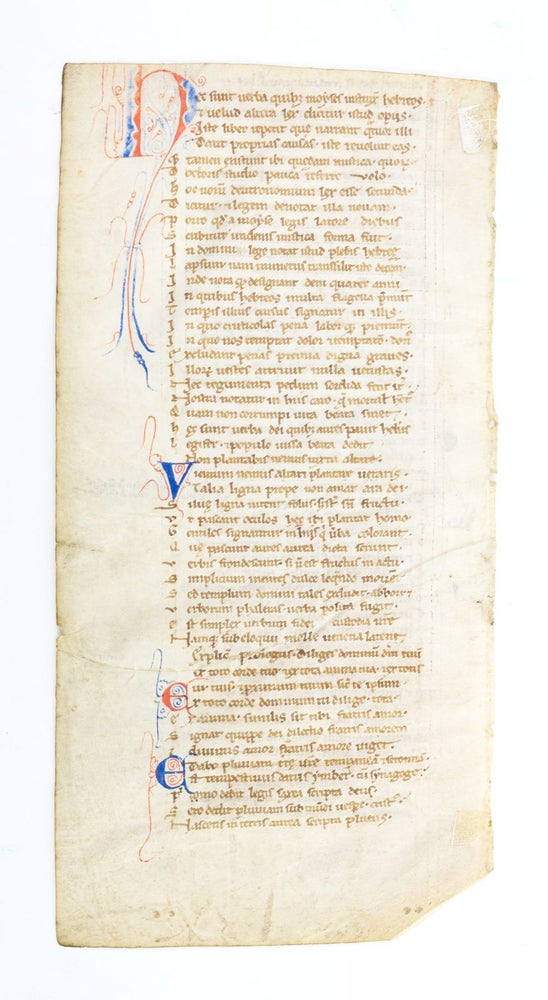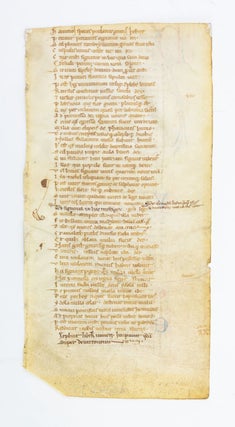TEXT FROM THE END OF THE COMMENTARY ON NUMBERS AND THE OPENING OF THE PROLOGUE FOR THE COMMENTARY ON DEUTERONOMY.
(England: first half of 13th century). 235 x 117 mm. (9 1/4 x 4 1/2"). Single column, 49-50 lines in a gothic hand.
Rubrics in dark brown ink, three two-line initials in red or blue with contrasting penwork, one four-line puzzle initial in red and blue, with red and blue penwork decorations and long marginal extenders. With a few contemporary corrections in a different hand, verso with scant remnants of mounting tape. Gwara Handlist no. 7. ◆Top edge trimmed, cutting into the large initial's ascender, one corner cut away (not affecting text), a couple of wrinkles and a bit of soiling to vellum, but in excellent condition overall, quite clean and entirely legible.
Noticeably different in appearance from the Medieval leaves more commonly encountered on the market (such as Books of Hours, Bibles, liturgical books, etc.), this leaf features a tall, thin "ledger" format and offset initials spaced slightly apart from the rest of the line. The text here comes from the "Aurora," a commentary on the Bible in verse form written in the late 12th century by French poet Petrus Riga (1140-1209), a canon of Rheims cathedral. Although little is known about the author's life, Riga's text became immensely popular throughout Europe and was routinely studied in Medieval universities. In fact, it is likely that the present leaf came from a manuscript intended for a student or academic, as its dimensions suggest it was made for easy transport and could even have been slipped into a pocket. In the 20th century, the parent manuscript was owned and dismembered by biblioclast Otto Ege, and leaves appeared as specimen no. 7 in his "Fifty Original Leaves from Medieval Manuscripts, Western Europe, XII to XVI Century." Single leaves from this manuscript appear at auction very rarely. The last example we were able to track on RBH and ABPC sold at Bloomsbury in 2016 for an all-in price of £3,100. (ST18250b)
Price: $4,500.00


